 | TODAY IN SCIENCE HISTORY
NEWSLETTER - 1 SEPTEMBER |
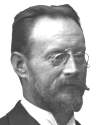 On 1 Sep 1858, Carl Auer was born, who was later created Freiherr (baron) von Welsbach. His invention of the incandescent gas mantle greatly improved the brightness of light that could be obtained from gas lamps. This was an important advance in a time before electric light dawned. On 1 Sep 1858, Carl Auer was born, who was later created Freiherr (baron) von Welsbach. His invention of the incandescent gas mantle greatly improved the brightness of light that could be obtained from gas lamps. This was an important advance in a time before electric light dawned. In this article from Illuminating Engineering, on The Work of Dr. Carl Auer von Welsbach in the Field of Artificial Illuminants, you'll find the story of an Austrian chemist who was working at his lab bench one day, researching spectra, when he found small beads of certain rare earths heated in a flame became white hot and incandescent. In a leap of intuition, he realized the potential for illumination. He experimented with soaking webbing with a mixture of suitable rare earth compounds, burning away the cotton framework, to create a mantle that became incandescent in a gas flame. He was eventually a manufacturer, distributing the mantles, or the fluids to make them, around the world. For an interesting side-light in the story (pun!) you'll find mention of a variety of elements that haven't seen discussed very often: lanthanum, zirconium, thorium and others. Worth a look to see how these rare earths had value in the nineteenth century in a commercial product. |
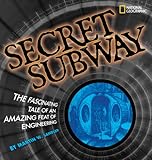 On 1 Sep 1826, Alfred Ely Beach was born, who was an American inventor and publisher of Scientific American magazine which reported on technology developments and patents in the 19th-century. On 1 Sep 1826, Alfred Ely Beach was born, who was an American inventor and publisher of Scientific American magazine which reported on technology developments and patents in the 19th-century. Beach himself invented a tunneling shield, financed and secretly built an experimental subway which propelled a carriage by novel means. The tunnel was short, just one block, and operated as a demonstration (1870-73), with one station and train car. Even so, it was New York City's first subway when it was opened to the public. Today's Science Store pick is: Secret Subway: The Fascinating Tale of an Amazing Feat of Engineering, by Martin W. Sandler who tells how the dream of this visionary engineer was crushed by the greed and political jockeying for power that characterized the city in the days of Boss Tweed and Tammany Hall. In the late 1860s New York was congested, a “bedlam on wheels,” yet Boss Tweed saw a threat to his power if the subway idea was extended. This is a National Geographic Children's book for age 10 and up. It is available New from $9.09. Used from $7.66. (As of time of writing.).
For picks from earlier newsletters, see the Today in Science Science Store home page.
| |
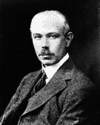 | Should the research worker of the future discover some means of releasing this [atomic] energy in a form which could be employed, the human race will have at its command powers beyond the dream of scientific fiction, but the remotest possibility must always be considered that the energy once liberated will be completely uncontrollable and by its intense violence detonate all neighbouring substances. In this event, the whole of the hydrogen on earth might be transformed at once and the success of the experiment published at large to the universe as a new star. - Francis William Aston, English chemist, physicist and chemist (born 1 Sep 1877).  |
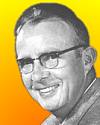 | There is no democracy in physics. We can't say that some second-rate guy has as much right to opinion as Fermi. - Luis W. Alvarez, American physicist (died 1 Sep 1988).  |
 | The sciences have sworn among themselves an inviolable partnership; it is almost impossible to separate them, for they would rather suffer than be torn apart; and if anyone persists in doing so, he gets for his trouble only imperfect and confused fragments. Yet they do not arrive all together, but they hold each other by the hand so that they follow one another in a natural order which it is dangerous to change, because they refuse to enter in any other way where they are called. ... - Marin Mersenne, French mathematician, natural philosopher and theologian (died 1 Sep 1648).  |
| Before you look at today's web page, see if you can answer some of these questions about the events that happened on this day. Some of the names are very familiar. Others will likely stump you. Tickle your curiosity with these questions, then check your answers on today's web page. |
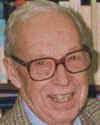 | Karl August Folkers, born 1 Sep 1906 was a U.S. chemist whose research on vitamins resulted in the isolation of vitamin B12, the only effective agent known in countering a certain medical problem.
 What is this medical problem? |
 | Francis William Aston, born 1 Sep 1877, was a British physicist who won the Nobel Prize for Chemistry in 1922 for his development of the mass spectrograph.
 What does the mass spectrograph do? |
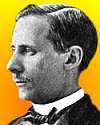 | Alfred Ely Beach, born 1 Sep 1826, was an American inventor and publisher, whose Scientific American helped stimulate 19th-century technological innovations and became one of the world's most prestigious science magazines. Beach himself invented a tunneling shield and built a subway (1870).
 What powered his subway carriages? |
 | Luis W. Alvarez (1911-1988) was an American experimental physicist who was awarded the Nobel Prize for Physics in 1968 for work that included the discovery of many resonance particles.
 What are resonance particles? |
| On 1 Sep 1914, the Ectopistes migratorius became extinct as the last surviving bird of the native American species died at the Cincinnati Zoo. In the wild, it had been hunted to extinction; the fact that it traveled and nested in large flocks made it easy to slaughter.
 What is the common name of this often-quoted example of an extinct species? |
When you have your answers ready to all the questions above, you'll find all the information to check them, and more, on the September 1 web page of Today in Science History. Or, try this link first for just the brief answers.
Fast answers for the previous newsletter for August 31: Jodrell Bank Experimental Station • law of the conservation of energy • inventions for the deaf • What was the industry he founded? • flight over water (Lake Erie) • cork. |
 If you enjoy this newsletter, the website, or wish to offer encouragement or ideas, please send feedback by using your mail reader Reply button. If you enjoy this newsletter, the website, or wish to offer encouragement or ideas, please send feedback by using your mail reader Reply button. |
--
If you do not want to receive any more newsletters,
Unsubscribe To update your preferences and to unsubscribe visit
this link 


 On 1 Sep 1858, Carl Auer was born, who was later created Freiherr (baron) von Welsbach. His invention of the incandescent gas mantle greatly improved the brightness of light that could be obtained from gas lamps. This was an important advance in a time before electric light dawned.
On 1 Sep 1858, Carl Auer was born, who was later created Freiherr (baron) von Welsbach. His invention of the incandescent gas mantle greatly improved the brightness of light that could be obtained from gas lamps. This was an important advance in a time before electric light dawned. 



 What is this medical problem?
What is this medical problem? 
 What does the mass spectrograph do?
What does the mass spectrograph do? 
 What powered his subway carriages?
What powered his subway carriages? 
 What are resonance particles?
What are resonance particles?  What is the common name of this often-quoted example of an extinct species?
What is the common name of this often-quoted example of an extinct species?  If you enjoy this newsletter, the website, or wish to offer encouragement or ideas, please send feedback by using your mail reader Reply button.
If you enjoy this newsletter, the website, or wish to offer encouragement or ideas, please send feedback by using your mail reader Reply button. 

Δεν υπάρχουν σχόλια:
Δημοσίευση σχολίου